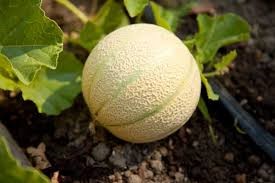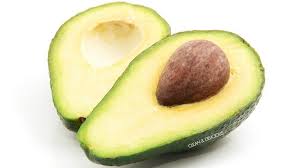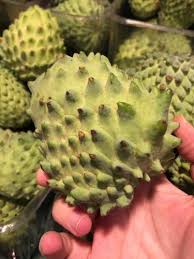Sweet melons….
Organic melons cause me to have deep philosophical reflections… about things that come at their appropriate times, about recognizing signs that are sent to us, and about life cycles in general.
Maybe it is something about their aroma? Watermelons we thump with a loving hand to check if they are ripe. But other melons we smell. We sniff and sigh, because there’s nothing like the smell of a ripe melon.
The Melon is an organic fruit that teaches us about timing. When the fruit is ripe, it creates a barrier between the fruit and the stem that prevents additional nutrients from entering the fruit. At the same time, the connection itself between the plant and the fruit begins to loosen, and picking a ripe fruit is extremely easy. I wish we all could indicate when we had enough, when we were full and there was no more needed, and we could gently cut off the connection with what does not serve us any longer…
The melon belongs to an extensive and warm family of organic fruits – the gourd family. The melon has about 825 relatives (lucky it doesn’t need to seat them all at the Passover table). Some of them grow wild and are typically shrubs – that is, they do not rise too high above the ground (maximum – waist height). So how does it manage to rise and prosper? The melon uses the same trick as the grapevine – the tendril. The same thin, delicate probe that feels its way around, finds a grabbing point, feels it lightly to make sure it's a firm brace-and then wraps its arms around it. And from there it grows and extends, embracing and climbing its way up-up towards the light, happy and content in its way, without needing to spend energies to grow a suportive trunk. If you watch this process by time lapse video, it looks like a delicate dance but with great power.
(This is not a melon, but the process is similar and it's just as charming)
The melons exist in a variety of shapes and colors – elongated or round, orange or greenish, with stripes along their lengths or a more abstract drawing on the peel. The flowers of the plant are yellow, and are also edible (usually in fancy desserts or summer salads) like the zucchini flowers that most of us are familiar with – zucchini and melons are from the same family. Originating from India (wow, those Indians managed to get together the tastiest and juiciest fruits…) and already in ancient Egypt by 5000 BC there was evidence of melon growing – in archeology as well as in art, even including decorations in the tombs of distinguished kings (because it is known that no self-respecting Pharaoh would move on to the next Egyptian world without proper interior design that includes melons). Also in the Roman and Byzantine periods they enjoyed creating melon-based art, which was preserved in mosaics throughout the Land of Israel.
The melon’s original name is a bit funny – melopepo, derived from the Greek name – melopepon, and if it reminds you of the word "cucumber, melafefon", of course it is not a coincidence, they are related.
In Israel we prefer organic melons with orange content – they contain lots of vitamin C (which is not only the best friend of the immune system, but also excellent for iron absorption and good for collagen synthesis), and a significant amount of lycopene (considered an anti-cancerous food). In the Philippines, India and some other places in Asia, they prefer the bitter melon (it is bitterly bitter) which is eaten in the form of fried chips (this reduces its bitterness) or dried, and it contributes to reducing blood sugar and treating skin diseases.

And finally – how to store a melon? Away from apples, or other organic fruits or vegetables that release ethylene gas, which causes the melon to spoil quickly. Anyway, it's better to just enjoy eating it and not leave it in the fridge.
Take a look at our organic melon archive for more information.
To health!
Yours,
Maggie and the garden team
We are expecting in our organic vegetable baskets:
Leeks
Swiss Chard
celery
Zucchinis
Cucumbers
Tomatoes
Beets
Potatoes
cabbage
And lettuce
In the large organic vegetable baskets, also:
Kale
Spinach
coriander
parsley
Organic fruit baskets:
Bananas
Melon
Oranges
In the large organic fruit baskets, also:
Another Melon 🙂
And more oranges











